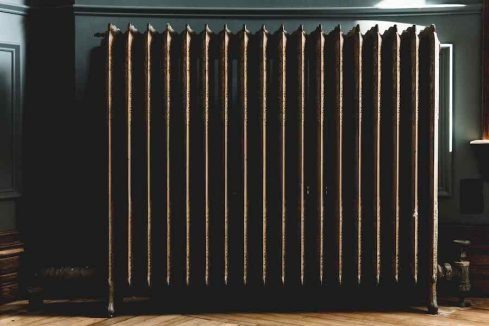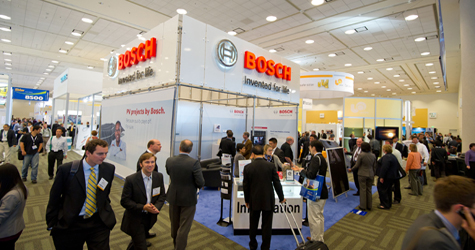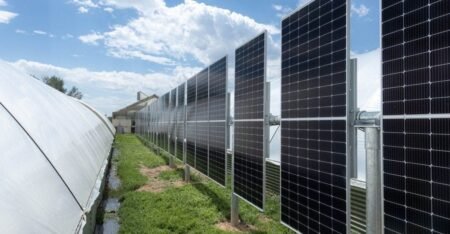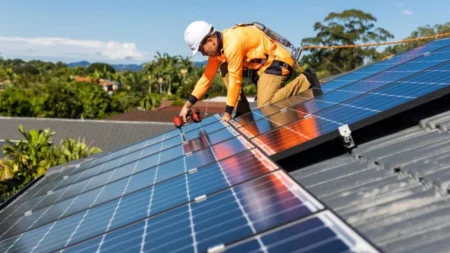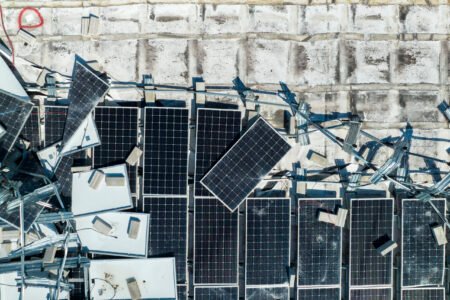What Does the UK Gas Boiler Ban Mean for the Renewables Sector?
The ban on gas boilers in new builds from 2025 has been welcomed by the renewables sector, but has also brings several challenges which must be overcome as soon as possible to meet the deadline.
People are often resistant to change and 85% of the UK population connected to the gas grid and used to heating on demand. Renewable heating solutions like heat pumps, for example, work differently by providing heat and hot water consistently but at lower temperatures. In addition, these lower temperature systems will need to be paired with different delivery systems such as larger radiators or underfloor heating. The renewables sector needs to be focused on raising awareness and educating both the public and house builders about these systems and the benefits they offer.
In particular, the cost of installing a renewable heating systems is often higher than a gas fired central heating system which may concern both house builders and homeowners from making the switch. Firstly, it’s crucial that the government and renewables sector can bring these prices down in the near future to make their widespread adoption more viable, but the sector also need to communicate that they are more cost-effective in terms of ongoing maintenance and running costs. Of course, these low running costs and simple maintenance rely on well-insulated homes and that the systems are operated correctly, which is where the need for education comes in again.
Here are some of the alternatives to the gas heating which are being championed by industry experts as potential solutions for new build developers and existing homeowners, although each comes with its own challenges.
Electricity
The concept of heating new homes with electricity is a popular one, with some industry experts predicting as much as 50% of the country’s energy will be provided by electricity by the 2030s.
- High efficiency electric heating could be the solution for new builds in well-insulated properties (as well as powering electric zero-emissions vehicles), but the challenge will be infrastructure. The electricity needs to be generated through renewable technologies, stored and distributed on a huge scale.
- Heat pumps are another popular recommendation as they take latent heat from the air, ground or water, compress it and use it for space heating and/or water heating. However, heat pumps are powered by electricity, so renewable electricity generation will also be crucial if heat pumps are to be installed in around 300,000 new build homes each year.
- Electric heating could be partnered with solar PV panels which harvest energy from the sun to produce renewable (and free) electricity on a home by home basis. Alternatively, large-scale wind farms or solar arrays could provide energy for heat networks which use a central energy centre to heat water and distribute it to multiple properties via pipes.
Hydrogen Gas Grid
Changing from a gas to a hydrogen network could be an option for both new builds and existing homes. Hydrogen, which is highly efficient and produces zero emissions, could be delivered through the existing network so that customers wouldn’t need to change appliances. However, hydrogen is highly flammable which may carry safety risks and, as carbon is emitted during production, carbon capture and storage system would be required to prevent it being released into the atmosphere.
Hybrid Heating
Moving existing homes which are already connected to the gas grid requires a different strategy as many older properties are not insulated well enough for renewable heating systems to be effective. Eventually, switching to a hydrogen network would be a logical next step, but for homeowners looking to reduce carbon emissions in the near future a hybrid heating systems may be the solution. These systems combine 2 types of heating to reduce reliance on fossil fuel. Some possible solutions could be:
- Heat pump with natural gas boiler (which would later be replaced with a hydrogen boiler)
- Heat pump with solar thermal panels installed on the roof which use heat from the sun to produce hot water for heating and taps
- Electric heating with solar PV generated electricity or solar thermal panels to supplement the hot water supply.
David Holmes is Founder of Boiler Guide, the smarter way for UK homeowners to find and compare new boiler quotes from local, Gas Safe and trustworthy heating engineers.



